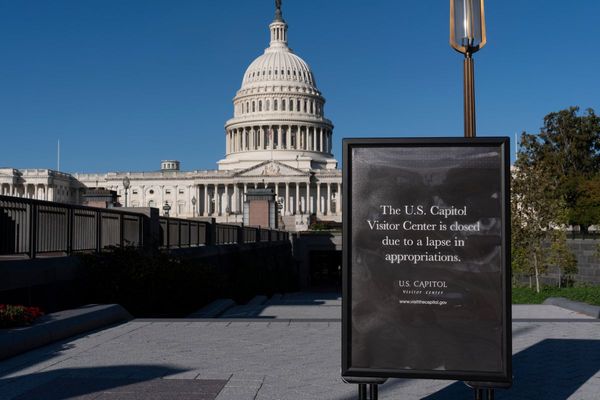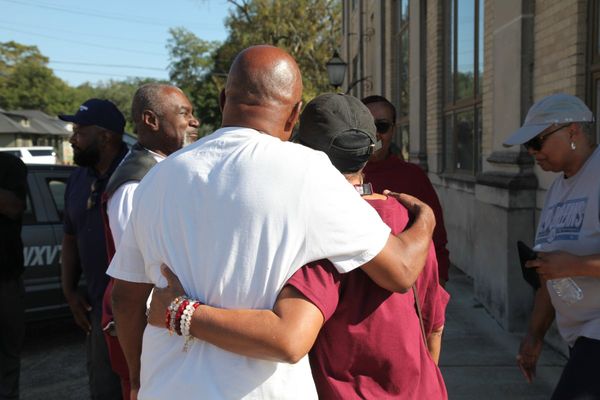The Gamesblog column in today's Technology section is all about the social side of online gaming. I avoided talking about MMORPGs, partly because WoW has attracted so much press over the last year, but also because the social elements of this type of game are obvious and absolutely intrinsic.
But what about the relationships we have with other players in first-person shooters like Battlefield and CounterStrike? Are they merely functional and - in the case of public, non-clan servers - transitory?
Also, socially, how is being in a clan different to being in a guild?
For the article, I asked several clan members and a couple of games journalists about their experiences on FPS servers. I didn't have space for many of their replies in the piece, so I've put some of them below. I think - at a time in which everyone is obsessed with social networking sites - the social side of first-person shooters is under-explored.
As I wrote in the un-edited version of my column, "Nothing I've seen on MySpace has been as riddled with immediate moral questions or provoked more contradictory reflexes than receiving terse sniping commands from a 12-year-old. Here, some of the most important questions about our online society fly about like spent cartridges, yet few are ready to grapple with them."
What do you think catagorises the relationships gamers form with each other in online games? It depends on the gamer and changes with age (and maturity). Amongst teenagers it seems to be an extension of the pack mentality - people gather together to prove their superiority over others. Social interaction is minimal and skill is all important. If you are naturally good you are embraced and if not you are discarded. Behaviour while gaming also tends towards the "dog eat dog" mentality, where the individual displays selfishness in their desires and a lack of social awareness that presumably they wouldn't display if dealing with others face to face.
Among older gamers (with some exceptions) that seems to become diluted with a recognition that who you play with and how you play can be as important as how well you do.
Then of course you have people like us - who treat gaming as a friendly community where who you play with and how you play actually becomes much more important than how well you do and in some cases, what you are playing. Blackadder, MPUK
Relationships online are most catagorised by their improvisation/ad hoc 'ness', and by the reading into every movement. What I think is especially interesting is that actions so often speak louder than words. Most of the relationships you form on clan servers just emerge out of the game and situation. In something like Battlefield 2, every player looks identical, and has the ability to look like everyone else on the server. So what you tend to find is that you group or work with people who are trying to work on the same problem - be it retrieving a flag in CTF, capturing a command point in Battlefield, or running defence. In PC Gaming, it's rare to use voice chat, so any messages are quickly typed, and then followed up by repeated jumping, to gain someone's attention. It's only once someone has gained your attention, that you can really start to work with them, communicate. Tim Edwards, PC Gamer
The nature of the game itself obviously has an effect on what kind of relationships form within it - Counter-Strike features very sudden and brutal deaths, often by an unseen assailant, so frustration and animosity are common. In Battlefield 2, camaraderie between players on the same team is stronger because players are split between different roles, and there are loads of ways to help each other. The Medic, for example, can even bring recently killed allies back to life with his defibriliators, which usually gets a "Thanks" and causes the saved player to stick around to fight alongside the Medic. Tom Francis, PC Gamer
When a person fights alone they often loose. I see the forming of teams as a method of becoming better yourself, and also improving the chances of others to experience a better game.
The system itself is quite amazing at times when a group of people who come from all over the world and have pretty much nothing in common can suddenly make friendships that are as strong as if they were sitting right next to you.
It's kind of the essence of multiplayer games nowadays to put cooperation and teamwork as the highpoints rather than just brutal fragging. It seems to be less repetitive when you've got three, four or even ten people working on your side, brutal failures and amazing successes are all part of the game, but seem sweeter when your friends, clanmates or alliance members are dominating. Charm, RAAB
Do you think those odd, two-minute allegiances that you form with other gamers in quick Battlefield/Counter Strike sessions are a kind of unique form of social interaction? Yes, definitely. I think it's interesting that I've never never made any attempt to follow up a relationship outside of a server, but always feel remarkably happy when I see familiar names playing. Why should I feel joy when someone I don't know is around? Because I know he/she has got my back, and that we're going to have a great time together. Tim Edwards, PC Gamer
A while back while playing Battlefield 1942 I formed a sort of fo friendship with a sniper on the opposing side. We kept having this sort of "duel", constantly aiming to pick each other off while surviving long enough to see the other through the scope of a rifle... Charm, RAAB
I myself have encountered this on numerous occassions such as once on BF2. I was pinned down by an APC with no way of getting away, out of the blue another team member came over to me with medical aid and a missile launcher, saving my skin and eventually helping us win. But after that, you part with the old, "good game", and your most likely never going to see them again. Cobra, RAAB
The short-term interaction with other gamers is no different to the interactions we all have during our everyday lives. They are no different to you walking through a busy high street and making eye contact with approaching shoppers to "negotiate" who goes what way. No different to standing in a bus queue and making smalltalk about the weather or the lateness of the bus with a perfect stranger, albeit taking place in an imagined world where getting killed is not necessarily The End. Deadmeat, MPUK
How important do you think social interaction is to online shooters? I personally think that social interaction is one of the most important aspects of online shooters. Not only is it the social act of meeting new people, from which you can become very good mates with but it also deepens the experience. You're no longer on your own with just a load of AI to try and help you, you know you've got real people with you and that they could just as easily run away and hide as they could help you out. With the clan I'm in, RAAB, because we play Operation FlashPoint very realistically, we have become a sort of family - everyone cares for one another as if we where fighting in real battles. Many of us went through the training together and it no longer feels like a game when you get that deep into friendships. Cobra, RAAB
Joining a clan is, at it's most trivial, a way of getting to play a game with somebody who at least shares some of the same gaming goals as yourself. It can develop into a close knit community of like-minded people who have just as much fun when not actually playing an online game as when they are playing the game.
But gaming clans are generally short lived affairs. The vast majority break up after a very short time. The problem is the sheer amount of "pressure to perform" that can be exerted onto gamers, who after all, for the most part, play these games to relax and have fun. A "serious" gaming clan is one of the worst gaming experiences you can have. Deadmeat, MPUK
That's an odd one. I've played online in a full server for hours, only to discover that they're bots, and I just didn't notice. Meanwhile, there are reports (Study: Gamers' Sensations of spatial social and co-presence [FuturePlay 2005]) that maybe once you separate players into two opposing teams, players tend to strip any empathy they may have had away from their friends. But the fact is, team games like Battlefield or CounterStrike are more fun, and more popular than games like Quake 3 or UT, where every man is out for himself. That's also stretched over other genres - more people play team battles on Warcraft 3, or Command and Conquer, than 1v1 matches. Tim Edwards, PC Gamer
In my case the appeal of being in a clan had nothing to do with social interaction - that was a pleasant surprise that came much later. The benefits I saw were that someone in a clan had been recognised by their clan-mates as being proficient at that game and that teamwork would not only be a lot easier, but expected. The down-side was that many people in clans (especially in CounterStrike) appeared to be juvenile idiots. Blackadder, MPUK
How do you feel the social side of online gaming has developed over the last few years? The ability to talk to people using voice-comms has dramatically changed online gaming. Hearing someone laugh over voice comms really makes you feel the social interaction in a way that typing "LOL" simply cannot. It is no longer simply a chat-room with pretty images, it is a social event. Blackadder, MPUK
Originally we had all the forums and websites, but now with the introduction of head-sets and the ability to speak to each other real-time via things like TS2 the social side has improved vastly. You can recognise someone's voice and know who they are and how they behave whilst talking to you. They are no longer a name and a message on the side of your screen like in the olden days. Cobra, RAAB
I am an old gamer, I started gaming when 'online' meant using a modem to connect up with a single friend, and even that failed more often than not. I still get irritable when I think of the phrase "Carrier dropped...".
Headsets themselves have not changed the way things work in online gaming, it is the sheer number of games available that has changed the social networking element. It is quite easy to become cut-off from the general gaming community and simply remain in contact with the players of a single game. This is rather a shame I feel, and can act in a rather divisive way, splitting game players as a whole into smaller and smaller parochial enclaves. If something then happens to that smaller community of players, I mean if the game of choice is dropped by the publishers for example, this can leave players rather dispirited. A rather large MMO was shut down a while back and some players were really rather badly affected by it.
Several years ago if you were a player of online games your choice was rather limited. As a result you came into contact with a very wide variety of different people, different ideas, even perhaps (dare I say) different cultures.
This gathering together of so many disparate people made for lively discussions, both within the games and in outside bulletin boards (though this was using Fidonet rather than the WWW) and gave the gamer a feel for being part of a worldwide movement. The very fact that there were so few online games around meant that the vast majority of the players of these games shared experiences and opinions with a large number of other gamers.
As the number of available games increased, and as those games themselves became more involved and detailed, this has begun to fragment the "gaming community". It is now too hard, I feel, to be in a position to try out all the online games available, and as such the "community" feel of online gaming is actually falling at a time when more and more people are actually playing online games. Deadmeat, MPUK
I think the most obvious example of development is World of Warcraft - clearly, the route to mainstream success is to create fun social spaces. All those seven million players arrived for the game, but stay playing because of the ties they form to guilds and friends. But, I'm really heartened to something included in Battlefield 2. Players can elect a commander, who will then dish out orders and provide supply drops. One thing they can do is reprimand or compliment a squad - when you press the right button, everyone in that team gets a little congratulation - "you're the best damned squad I've ever seen." Which I think is just brilliant - when a commander did that to me for the first time, I felt very, very proud.
Quake Wars: Enemy Territory is trying something slightly odd. A player can be elected as commander and pass out orders, but if no-one's around, a computer will take control, and find things for you to do appropriate to your class. If you're, say, carrying a big machine gun, it will mark an enemy fortified position, and tell you to pin it down. The plan is to make everyone feel like they're part of a combined unit of soldiers - working together. Co-ordinated groups play better, and have more fun - if they can get every player to feel part of that, Splash Damage could be onto something very special. Tim Edwards, PC Gamer







